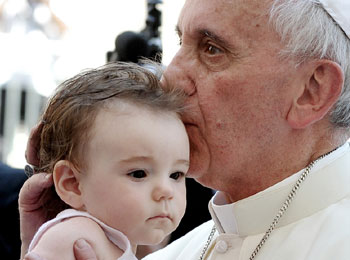What is love? How to understand true love? How does God love us? These are questions that mankind has pondered over since the time of the first man and woman. These questions continue to dominate the mind-space of men and women even today. So, what is love? Let’s find out…
By Abhilash Pulichanickal
LOVE is a complex and multifaceted emotion that is difficult to define in a single line or a paragraph because it can manifest in so many different ways. At its core, love is an intense feeling of affection, care, and connection towards someone or something.
Love can also involve feelings of attraction, desire, intimacy, and commitment.
Love can take many forms, including romantic love, familial love, platonic love, and self-love. It can be characterized by feelings of warmth, happiness, and contentment, as well as feelings of vulnerability, trust, and intimacy.
Love is often associated with a desire to protect, nurture, and support the object of our affection, and it can inspire us to act in selfless and compassionate ways. While love can bring immense joy and fulfillment, it can also be challenging, painful, and complicated at times.
Ultimately, love is a fundamental aspect of the human experience, and it plays an important role in shaping our relationships, our sense of self, and our overall well-being.
That brings us to another question.
How to understand true love?
IS it possible for one to recognize and understand true love?
Understanding true love can be quite a challenge, as it can mean different things to different people. However, here are some general characteristics that may help you recognize true love:
Selflessness: True love involves a willingness to prioritize the needs and happiness of your partner over your own. This means being willing to make sacrifices, compromise, and put in effort to make your partner feel loved and appreciated.
Acceptance: True love involves accepting your partner for who they are, including their strengths, weaknesses, quirks, and flaws. It means embracing them as a whole person. Don’t try to change them, they won’t. Instead, lift up the ideals that appeal to you, pray for him / her and let God do the rest.
Trust: True love involves a deep sense of trust and reliability. This means being honest and transparent with your partner, keeping your promises, and staying committed to them even in difficult times.
Communication: True love involves open and honest communication, including the ability to express your feelings, listen actively to your partner, and work through conflicts and disagreements together.
Respect: True love involves showing respect for your partner’s opinions, beliefs, and boundaries, even if they differ from your own. It means treating them with kindness, consideration, and compassion, and acknowledging their value and worth as a human being.
These are just a few characteristics of true love, and there may be other factors that are important to you personally. Ultimately, understanding true love requires self-reflection, introspection, and a willingness to cultivate a deep and meaningful connection with your partner.
How does God love us?
THE nature of God’s love for humanity is a subject that has been debated and discussed by theologians, philosophers, and believers for centuries. While there are many different interpretations and perspectives on this topic, here are some general ways that God’s love for us is often understood:
Unconditional Love: God’s love for humanity is often described as unconditional, meaning that it is not based on our actions, behaviors, or accomplishments. Instead, God’s love is seen as an inherent part of who God is, and is freely given to us regardless of our flaws, mistakes, or shortcomings. The Bible says 1 John 4: 16: ‘And so we know and rely on the love God has for us. God is love. Whoever lives in love lives in God, and God in them.’
Sacrificial Love: Another aspect of God’s love for us is often described as sacrificial, meaning that God was willing to make a great sacrifice for our benefit. This is exemplified in the Christian belief that God sent His son, Jesus Christ, to die on the cross for the forgiveness of our sins. God expects us to put on this love that God showed us. In John 15:13, Jesus said: ‘Greater love has no one than this: to lay down one’s life for one’s friends.’ That’s exactly what He did on the cross for us. 1 Peter 4:8 says: ‘Above all, love each other deeply, because love covers over a multitude of sins. ‘
Personal Love: God’s love for us is also often described as personal, meaning that it is not an abstract concept, but is directed toward each of us individually. This means that God is intimately involved in our lives, cares about our well-being, and desires a relationship with us. I often tell my church, even if I were the only sinner on earth Jesus would still have come down and laid down His life on the cross to save me. In Colossians 3:14 we read: ‘And over all these virtues put on love, which binds them all together in perfect unity.’
Transformative Love: Finally, God’s love for us is often described as transformative, meaning that it has the power to change us from the inside out. This means that as we experience God’s love, we are transformed into more loving, compassionate, and selfless people. Love changes us. God’s love transforms. John 3:16 says: ‘For God so loved the world that He gave His one and only Son, that whoever believes in Him shall not perish but have eternal life.’
A lot more can be said about how God loves us. Ultimately, the nature of God’s love is a deeply personal and subjective experience that can only be fully understood through personal reflection, prayer, and spiritual practice. Like someone said the proof of the pudding is in the eating. You have to have a relationship with God to know, understand and appreciate His love.
Some of the classic lines ever penned down by anyone on love is found in the Bible. It is called the greatest gift. Apostle Paul in 1 Corinthians 13 wrote this about love:
Love, The Greatest Gift
‘Though I speak with the tongues of men and of angels, but have not love, I have become sounding brass or a clanging cymbal. And though I have the gift of prophecy, and understand all mysteries and all knowledge, and though I have all faith, so that I could remove mountains, but have not love, I am nothing. And though I bestow all my goods to feed the poor, and though I give my body to be burned, but have not love, it profits me nothing.
Love suffers long and is kind; love does not envy; love does not parade itself, is not puffed up; does not behave rudely, does not seek its own, is not provoked, thinks no evil; does not rejoice in iniquity, but rejoices in the truth; bears all things, believes all things, hopes all things, endures all things.
Love never fails. But whether there are prophecies, they will fail; whether there are tongues, they will cease; whether there is knowledge, it will vanish away. For we know in part and we prophesy in part. But when that which is perfect has come, then that which is in part will be done away.
When I was a child, I spoke as a child, I understood as a child, I thought as a child; but when I became a man, I put away childish things. For now we see in a mirror, dimly, but then face to face. Now I know in part, but then I shall know just as I also am known.
And now abide faith, hope, love, these three; but the greatest of these is love.’





















